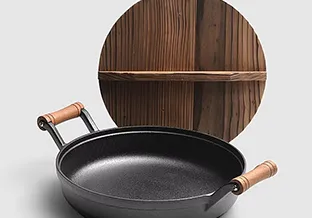
cast iron dishes
The Versatility of Cast Iron Dishes
Cast iron dishes have captured the hearts of chefs and home cooks alike, celebrated for their durability, heat retention, and versatility. From frying pans to Dutch ovens, cast iron cookware has become an essential tool in kitchens around the world. This article explores the myriad benefits of cast iron dishes, their historical significance, and some tips on how to care for them.
A Rich History
Cast iron cookware has a long and storied history that dates back to the Han Dynasty in China, with evidence of cast iron production as early as 200 BC. By the 18th century, this robust cooking material made its way to Europe and soon became a staple in American households. The combination of its affordability, longevity, and excellent heat distribution made it a preferred choice among cooks. Today, brands like Le Creuset and Lodge continue the tradition, producing high-quality cast iron dishes that are both functional and stylish.
Heat Retention and Versatility
One of the standout features of cast iron dishes is their ability to retain heat. This property makes them ideal for various cooking methods, including searing, frying, baking, and even roasting. A well-seasoned cast iron skillet can reach high temperatures, allowing for perfect browning and caramelization. The versatility of cast iron is further demonstrated by its compatibility with multiple heat sources, including stovetops, ovens, and even open flames. Whether you’re preparing a rustic cornbread or a rich stew, cast iron dishes can handle it all.
cast iron dishes

Additionally, cast iron is known for its non-stick properties once properly seasoned. With a little oil and heat, food releases easily from the surface, making cleanup less of a chore. As a result, many cooks prefer using cast iron for dishes that might otherwise stick to traditional non-stick pans.
Caring for Cast Iron
To ensure your cast iron dishes last a lifetime, proper care and maintenance are paramount. The first rule of thumb is to avoid soaking your cast iron cookware in water, as this can lead to rust. Instead, clean your cast iron skillet or pot with hot water and a stiff brush immediately after use. For stubborn residues, a small amount of mild soap can be used, though many purists advise against it to maintain the seasoning.
After washing, dry the cookware thoroughly and apply a thin layer of cooking oil to prevent moisture from causing rust. This creates a protective barrier while enhancing the non-stick surface. Regularly seasoning your cast iron dishes improves their cooking performance and extends their lifespan. The more you use and care for your cast iron, the better it performs.
Conclusion
In conclusion, cast iron dishes are not only a culinary staple but also a connection to our cooking heritage. Their durability, excellent heat retention, and versatility make them beloved by cooks of all skill levels. By understanding their care and maintenance, anyone can enjoy the benefits of cast iron cookware in their kitchen for generations to come. Whether you're a seasoned chef or a novice, investing in a cast iron dish is sure to elevate your cooking experience.
-
Season Cast Iron Perfectly with GPT-4 Turbo TipsNewsAug.01,2025
-
High Quality Cast Iron Cookware - Baixiang County Zhongda MachineryNewsAug.01,2025
-
Premium Cast Iron Pan: Durable & Perfect HeatNewsAug.01,2025
-
High Quality Kitchen Durable Black Round Cast Iron Cookware Pancake Crepe Pan-Baixiang County Zhongda Machinery Manufacturing Co., Ltd.NewsAug.01,2025
-
Cast Iron Cookware - Baixiang County Zhongda Machinery | Nonstick, Heat ResistanceNewsAug.01,2025
-
High Quality Kitchen Durable Black Round Cast Iron Cookware - Baixiang County Zhongda Machinery | Non-Stick, Heat Retention, DurableNewsJul.31,2025


